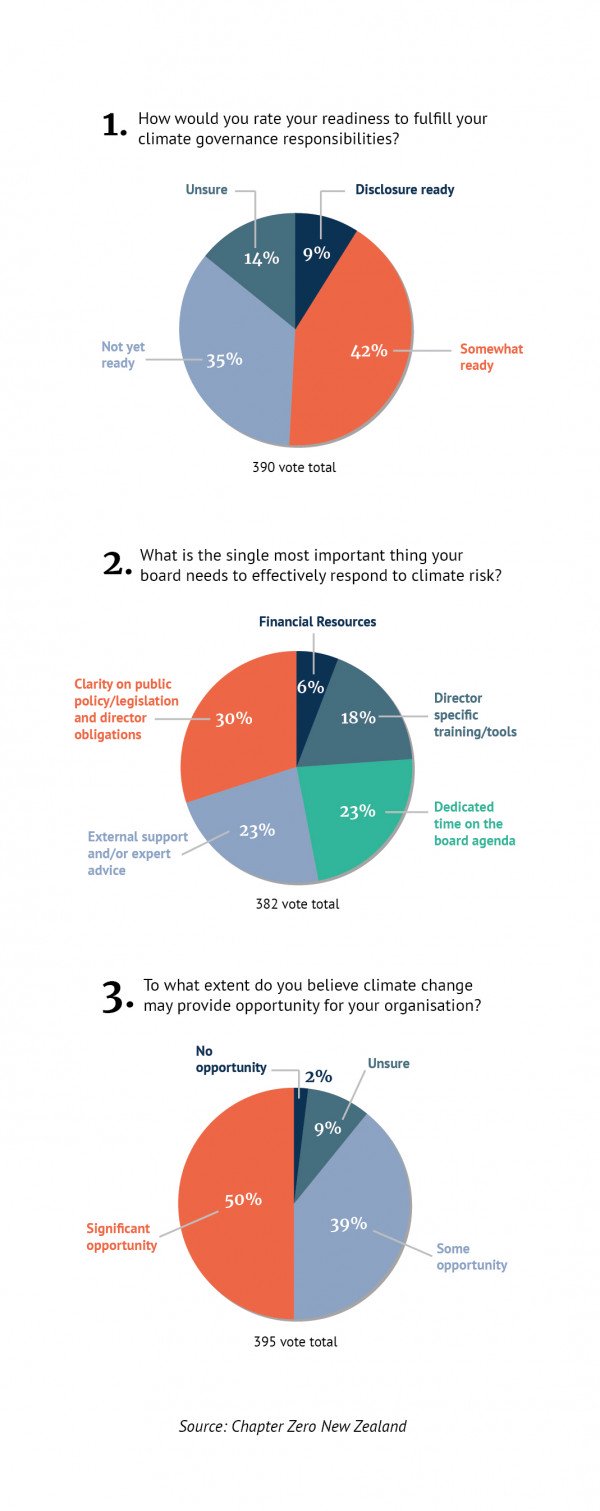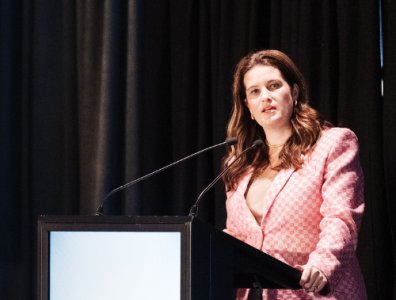Only nine per cent of directors feel ready for the upcoming Climate Related Disclosures
In an audience poll at the launch of Chapter Zero New Zealand on 3 March, one of the key findings was that only 9% of directors feel ready for the upcoming Climate Related Disclosures.
When asked how they would rate their readiness to fulfil climate governance responsibilities 42% of respondents indicated they feel somewhat ready, 35% are not yet ready, and only 9% rating themselves as ‘Disclosure ready’.
In his address at the online event, Hon James Shaw, the Minister of Climate Change highlighted that New Zealand is the first country in the world to move toward a mandatory climate-related disclosure regime. The results of the poll suggest that further education and support will be required for directors to feel confident with the new reporting standards.
Dame Therese Walsh who chairs the new Chapter Zero NZ Steering Committee also noted this challenge. She drew on the comparison with financial reporting which uses systems and processes, that have become commonly used and understood by all directors over decades. “Climate governance is in its infancy…We don’t have decades to come up with a really robust financial reporting system equivalent. We need to do it really quickly and to the best of our ability. And that’s where coming together can help” said Dame Therese.
Chapter Zero NZ is part of a global network of 30 territories worldwide. These Chapters act as a hub for directors connecting them to address opportunities and challenges to achieve effective climate governance. As part of her speech, Karina Litvack, Chair of the CGI Governing Board, outlined how the network will provide practical support for directors to make climate part of strategic decision making, driving robust plans and measurable actions.
“The whole point of this initiative is to turn all of you into effective advocates in your boardrooms. And to be an effective advocate we need to be armed with good information and knowledge gained from our fellow directors around the world, learning from their mistakes and their successes…” she said.
How should boards respond to climate risk?
When asked what the single most important thing boards need to do to effectively respond to climate risk, 30% wanted clarity on public policy, legislation and director obligations. 23% wanted dedicated time on the board agenda and a further 23% prioritised external support and/or expert advice. This feedback highlights the importance of a national body being able to contextualise global best practice for the New Zealand environment.
Despite the stark reminder from the IPCC Report published earlier this week and highlighted by all of the speakers, there was a sense of optimism and hope that directors do still have a window for action.
What are the opportunities?
The final audience poll asked directors to what extent they believe climate change may provide an opportunity for their organisation. 50% of respondents felt there was significant opportunity with a further 39% seeing some opportunity.
One opportunity highlighted by Dame Therese was unique Te Ao Māori perspective on climate that New Zealand could contribute to the global dialogue.
“Being part of the global community around Chapter Zero, my dear wish is that some of the things that are very unique to Aotearoa can actually be very helpful to the global community. There are certain sectors that we are very well versed in. But think importantly about the Te Ao Māori focus. That is something that is not well developed in terms of how indigenous people are dealt with in other parts of the world and I think we could create some real impact on the global stage in that regard” said Dame Therese.
Poll results




